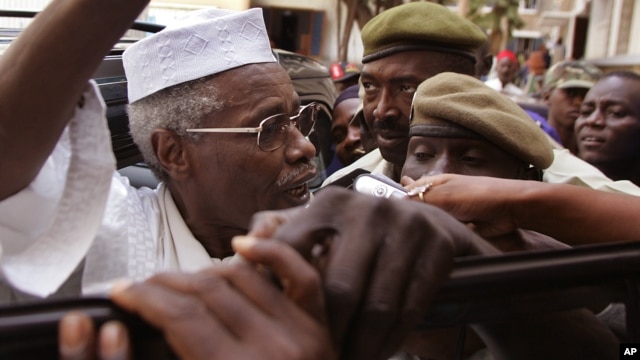By Ryan Aliman
Impunity Watch Reporter, Africa
N’DJAMENA, Chad – The governments of Senegal and Chad signed an agreement last Friday allowing Senegalese judges to investigate war crime cases in Chad from the regime of Chadian dictator Hissène Habré.

According to Senegalese Justice Minister Aminate Toure, the agreement signed in Dakar will ease the movement of judges by allowing them to conduct their own investigations on Chadian soil.
“I have a pious thought for the victims who have suffered too much and begin to despair. The trial cannot take place unless the investigators are allowed to move freely in Chad,” Toure’s Chadian counterpart Jean Bernard Badare added.
The Senegalese judiciary is expected to look into the alleged atrocities committed from 1982 to 1990 for which Habré is tried for by a special tribunal in Dakar. He is currently facing charges of more than 40,000 cases of political killings, torture, and crimes against humanity. He has been living under house arrest in Dakar since 1990.
Chad allowing Senegal to try and investigate Habré is a first in world affairs. Usually, when a leader of one country is accused of human rights violations, his trial takes place within his home country or under the jurisdiction of the International Court of Justice (ICJ) in The Hague.
Nevertheless, human rights groups including Human Rights Watch (HRW) say that the decision of the two governments will “greatly facilitate the work of the court and help move the long-delayed case forward.”
“Investigating and prosecuting crimes that happened 20 years ago in another country is a very complex task. And normally, judges from one country have to go through a very cumbersome task to collect evidence from another country. What this agreement does, is it basically allows the court to investigate in Chad, as if they were investigating in Senegal,” explained Reed Brody, a HRW lawyer who has been working with Habre’s victims since 1999.
Brody also said that the agreement will compel the Chadian government to protect witnesses involved in Habre’s case and to hand over any documents the Senegalese judges may request.
“It’s important for the integrity of the process that Senegalese judges see that evidence and weigh that evidence before them – the court that’s going to try Hissène Habré. And the judges are also looking for evidence that could exculpate Hissène Habré. So they need to look at witnesses who Hissène Habré wants to present,” he said.
The Chadian government is expected to hand over the materials to the Senegal court this week for the ongoing preliminary investigations.
For further information, please see:
Africa Review – Senegal, Chad sign agreement to facilitate Habre’s trial – 5 May 2013
UPI – Senegal, Chad agree to investigate war crimes in Chad – 4 May 2013
Voice of America – Senegal, Chad Sign Agreement to Investigate Wartime Crimes – 4 May 2013
Global Post – Senegal investigators allowed into Chad for Habre case – 3 May 2013